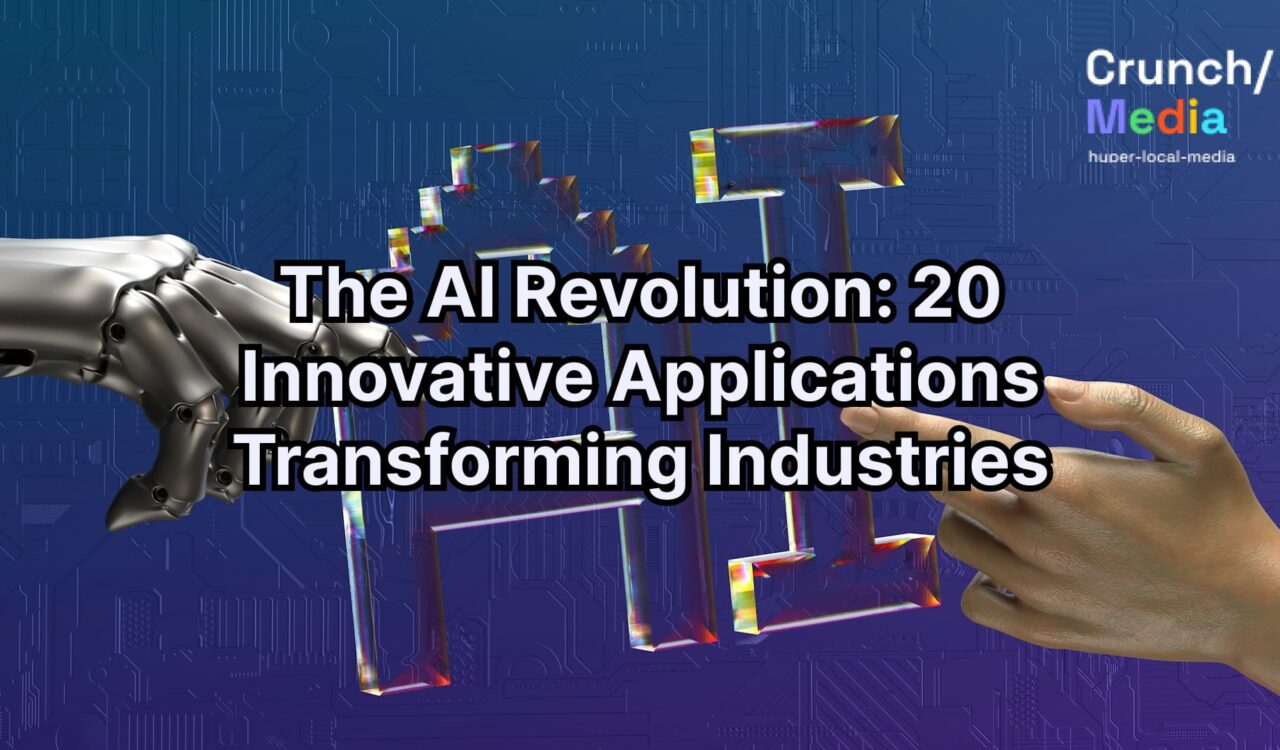Artificial Intelligence (AI) is no longer a concept of the future. It’s here, reshaping industries and revolutionizing the way we live and work. From the food on our plates to the clothes on our backs, AI applications transforming industries are making their mark in surprising and innovative ways. Let’s dive into 20 exciting AI applications across various sectors, exploring how these technological advancements are driving change and creating new possibilities in diverse fields.
Introduction
AI has come a long way from being a sci-fi dream to a real-world game-changer. Today, it’s not just about robots and self-driving cars. AI is quietly transforming industries you might never have imagined. In this article, we’ll explore 20 fascinating applications of AI, from fashion design to wildlife tracking, and everything in between.
AI in Primary Industries

Agriculture: Growing Smarter
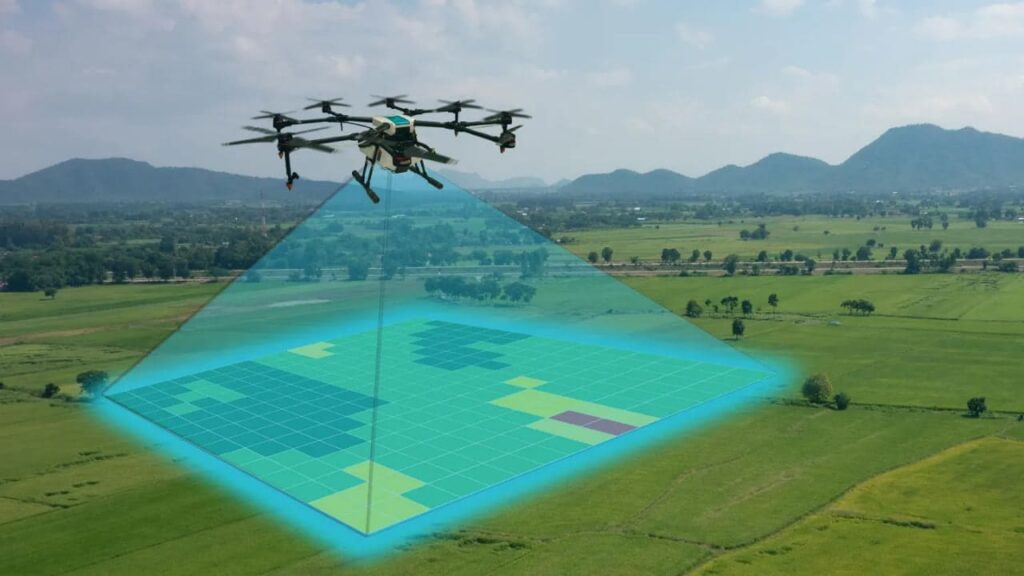
AI is plowing its way into agriculture, quite literally. Farmers are now using AI-powered tools to revolutionize their practices and address critical challenges in the industry:
- Precision farming: AI analyzes satellite images and sensor data to help farmers make decisions about when to plant, irrigate, and harvest. For example, CropX has developed a platform that uses real-time data to monitor soil health. Their solution has led to impressive results, including a 57% reduction in water usage and up to a 70% increase in crop yields.
- Crop management: Machine learning algorithms predict crop diseases before they spread, saving entire harvests. One innovative application is pest control. Trapview has created an AI-powered device that not only traps pests but also identifies them using computer vision. It can recognize over 60 pest species, such as the codling moth and cotton bollworm, allowing farmers to take targeted action. Trapview reports that its customers have seen a 5% increase in yield and quality, along with overall savings of 118 million euros in growers’ costs.
- Weed control: AI is transforming how farmers manage weeds, a problem that causes significant crop losses. Carbon Robotics has developed the , an AI-powered robot that uses deep learning and computer vision to identify and eliminate weeds with astonishing precision. This machine can weed up to two acres per hour and eliminate up to 5,000 weeds per minute with 99% accuracy. Farmers using this technology have reported reducing weed control costs by up to 80%.
These AI applications are not just improving efficiency; they’re also addressing critical global challenges. With the world population expected to reach 9.3 billion by 2050, we need to produce 60% more food. AI in agriculture is proving to be a key solution, with the market projected to grow from $1.7 billion in 2023 to $4.7 billion by 2028. By leveraging AI, farmers can increase productivity while reducing resource usage, paving the way for more sustainable and efficient agricultural practices.
Environmental Conservation: Saving the Planet, One Algorithm at a Time
AI is becoming Mother Nature’s new best friend:
- Climate prediction: AI models process vast amounts of data to forecast climate changes more accurately than ever before.
- Ecosystem monitoring: Drones equipped with AI can track deforestation and illegal poaching in real-time.
Read more about Environmental Conservation on CrunchDubai:
AI in Creative Fields

Music Composition: AI Hits the Right Notes
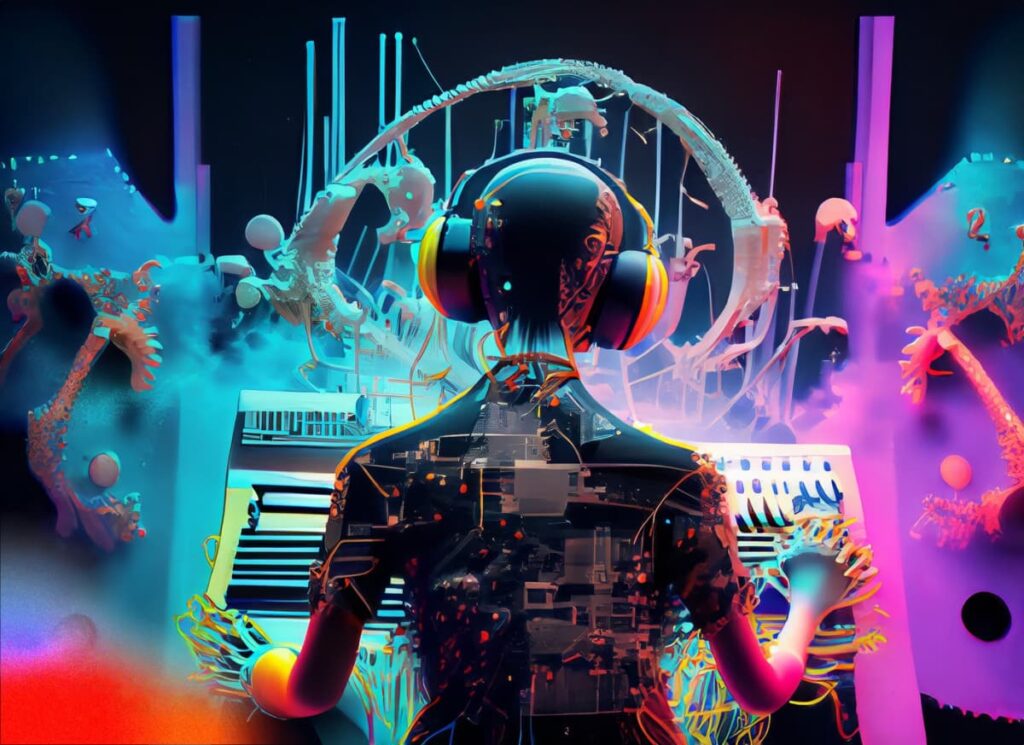
AI is composing its way into the music industry, transforming how music is created and experienced:
- Assisting musicians: AI tools help composers overcome writer’s block by suggesting melodies and chord progressions. For example, musicians are embracing tools like BandLab, which suggests unique musical loops based on prompts to spark creativity.
- Creating unique soundscapes: AI-generated music is being used in video games and films to create adaptive, ever-changing soundtracks. The AI app Endel generates customized, constantly-mutating soundscapes for focusing, relaxing, or sleeping based on users’ preferences and biometric data.
- Resurrecting lost voices: AI is being used to bring back the voices of departed artists. The Beatles recently used AI to isolate John Lennon’s voice from a 1978 demo, creating a new song called “Now and Then” – the band’s first and only song released in the 21st century featuring all four members.
- Generating instant compositions: New AI tools allow users to create entire songs just by typing text prompts. For instance, a YouTube tool powered by Google DeepMind’s Lyria model can generate song snippets based on descriptive text input.
- Evolving music experiences: Some companies, like Bronze, are using AI to create ever-evolving versions of songs that never sound the same when played back twice, challenging our conceptions of what music could be.
Here are some specific AI music composition tools making waves in the industry:
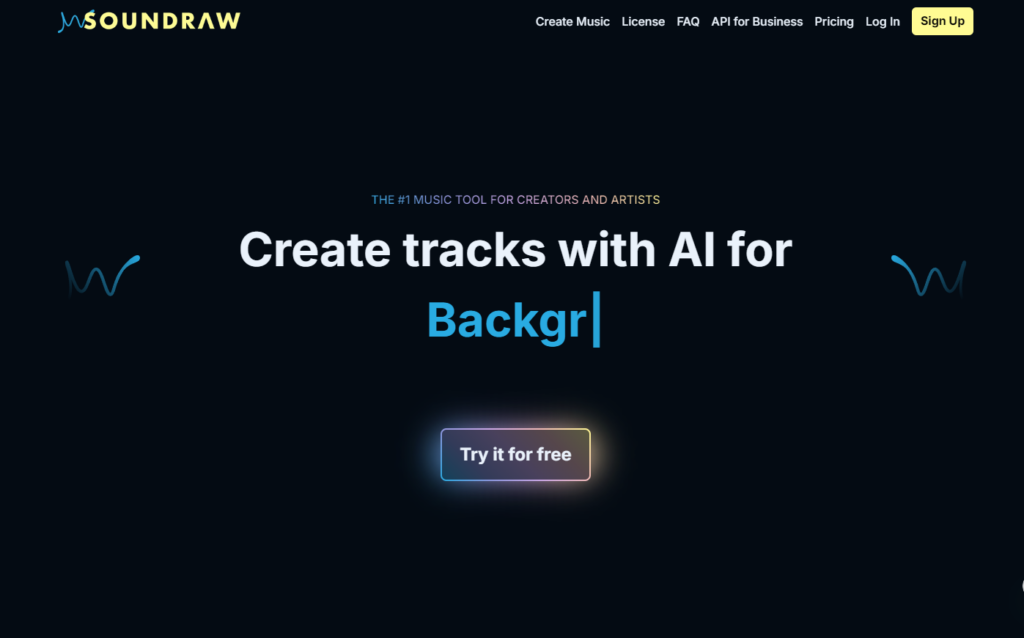
This AI-based music generation tool allows users to create unlimited songs for various needs like background music for videos, podcasts, and games. Users can customize tempo, key, chord progression, and even use a melody editor for unique compositions.
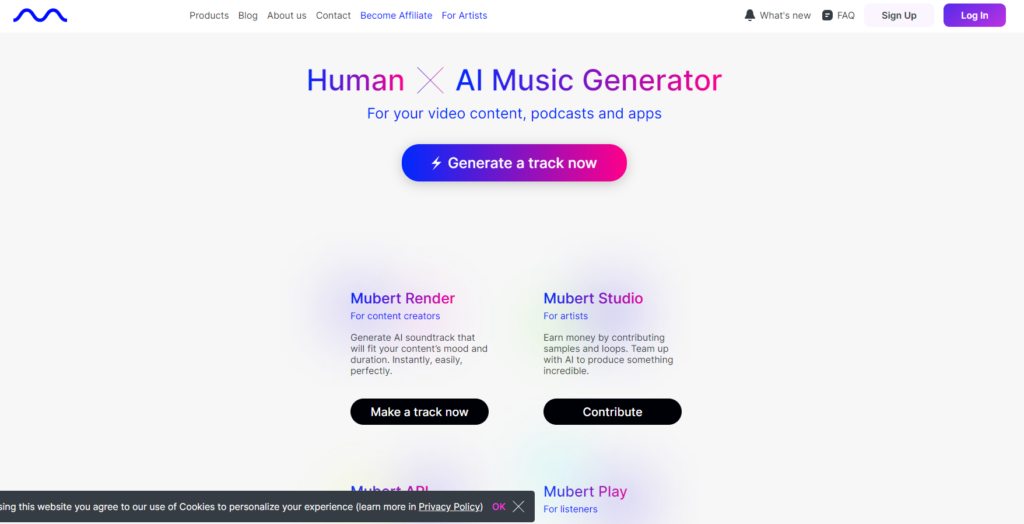
This platform uses AI to generate unique, royalty-free music. It caters to content creators, developers, and artists, offering AI-driven music generation with customization options for mood, duration, and tempo.
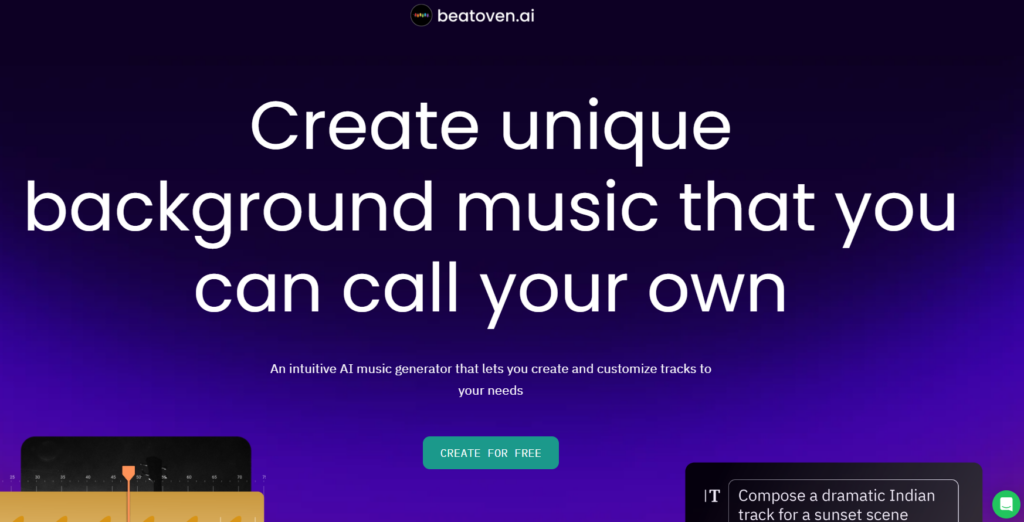
Designed for content creators, this tool uses AI to generate customizable, royalty-free music that aligns with the mood and tone of your content. It’s particularly useful for creating background music for videos and podcasts.
While these advancements offer exciting possibilities, they also raise questions about creativity, authorship, and the role of human musicians in an AI-powered future. As the technology continues to develop, the music industry will need to grapple with both the opportunities and challenges presented by AI composition tools.
Film Production: Lights, Camera, AI, Action!
Hollywood is embracing AI in more ways than one:
- Visual effects: AI accelerates the creation of complex visual effects, making the impossible possible on screen.
- Post-production: Machine learning algorithms can automatically edit raw footage, saving countless hours in the editing room.
Read more about AI on CrunchDubai:
AI in Urban Development and Planning
Urban Planning: Building Smarter Cities
AI is helping city planners create more livable urban spaces:
- Traffic optimization: AI models predict traffic patterns and adjust signal timings in real-time to reduce congestion.
- Infrastructure planning: Machine learning helps identify where new roads, parks, or public services are most needed.
Watch more:
Real Estate: Home Sweet AI Home
The property market is getting an AI upgrade:
- Market prediction: AI analyzes market trends, economic indicators, and local data to forecast property values.
- Virtual tours: AI-powered virtual reality allows potential buyers to tour homes from anywhere in the world.
Disaster Management: AI to the Rescue
When disaster strikes, AI can be a lifesaver:
- Early warning systems: AI processes data from various sources to predict natural disasters like earthquakes and tsunamis.
- Response coordination: During crises, AI helps allocate resources and coordinate rescue efforts more efficiently.
AI in Professional Services
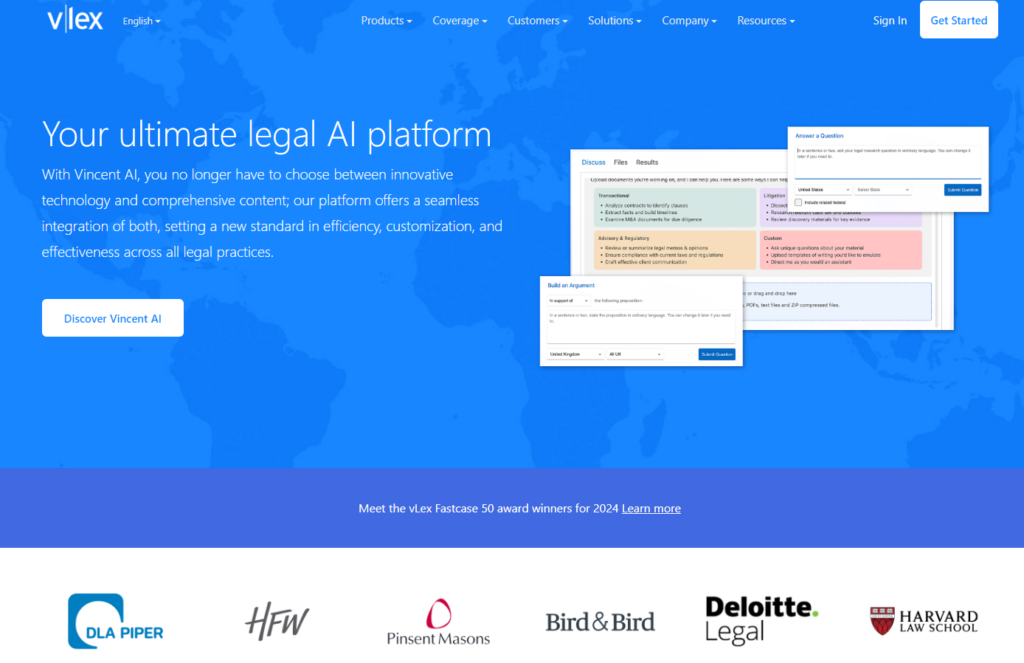
Legal Research: Justice, Served by AI
The legal world is embracing AI to navigate the complexities of law:
- Document review: AI can sift through thousands of legal documents in minutes, flagging relevant information for lawyers.
- Case analysis: Machine learning algorithms can predict case outcomes by analyzing past court decisions.
Financial Forecasting: AI Predicts the Money
AI is changing the game in finance:
- Market trends: AI models analyze vast amounts of financial data to predict market movements.
- Risk management: Machine learning helps identify potential financial risks before they become problems.
Supply Chain Management: AI Delivers the Goods
AI is streamlining how products move from factory to consumer:
- Logistics optimization: AI plans the most efficient routes for deliveries, considering factors like traffic and weather.
- Inventory control: Machine learning predicts demand, helping businesses keep just the right amount of stock on hand.
AI in Health and Wellness
Mental Health: AI Therapists Lend an Ear

AI is providing new tools for mental health support:
- Therapy chatbots: AI-powered chatbots offer 24/7 support for people dealing with anxiety or depression.
- Mood tracking: Apps use AI to analyze speech patterns and facial expressions, helping users understand their emotional states.
Medical Diagnostics: Are In
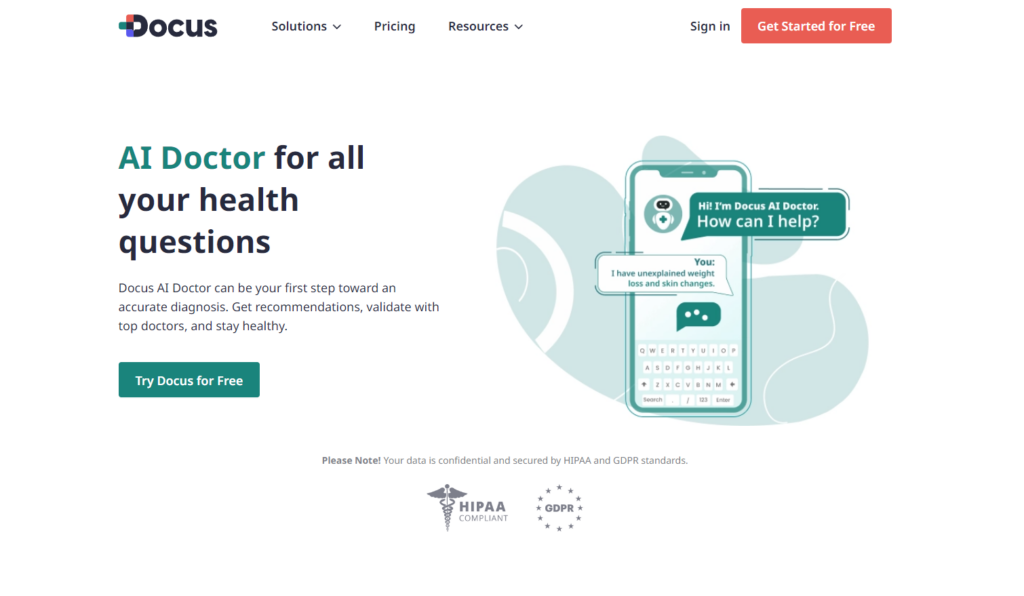
AI is becoming a valuable tool in healthcare:
- Disease detection: AI can spot signs of diseases like cancer in medical images, often earlier than human doctors.
- Treatment planning: Machine learning helps doctors choose the most effective treatments based on a patient’s unique profile.
Personalized Education: AI Tutors for All
Education is getting smarter with AI:
- Adaptive learning: AI-powered systems adjust the difficulty and style of lessons based on each student’s progress.
- Customized curricula: Machine learning helps create personalized study plans that cater to individual learning styles and goals.
AI in Sports and Entertainment
Sports Analytics: The New MVP (Most Valuable Predictor)
AI is revolutionizing sports analytics, becoming the new MVP – Most Valuable Predictor:
- Game Analysis: AI algorithms process and analyze hours of game footage rapidly, identifying patterns and trends invisible to the human eye. This includes tracking player movements, ball possession, and play styles with unprecedented detail.
- Performance Metrics: AI tools dissect player statistics to evaluate performance efficiently. Metrics like speed, accuracy, endurance, and decision-making are analyzed to gauge player efficiency and effectiveness.
- Predictive Insights: By analyzing historical data, AI can predict future game outcomes, player performance, and even opponent strategies. This predictive capability allows coaches to prepare more effectively for upcoming games.
- Real-Time Adjustments: During games, AI can provide real-time data and suggestions, enabling coaches to make tactical adjustments on the fly. This could include changes in team formations, player substitutions, or shifts in playing style.
- Opponent Analysis: AI tools can analyze an opponent’s past games, providing insights into their tactics, key players, and potential vulnerabilities. This information is crucial for developing counter-strategies.
As AI technology advances, its role in sports strategy and analytics is set to become even more integral and influential, offering teams a significant competitive advantage through data-driven decision-making.
Gaming and Entertainment: Play Smarter, Not Harder
AI is leveling up the world of gaming:
- Immersive experiences: AI creates dynamic game worlds that adapt to each player’s actions.
- Storytelling: Machine learning generates unique storylines, ensuring no two gameplay experiences are the same.
AI in Energy and Resource Management
Energy Optimization: Powering a Smarter Future

AI is helping us use energy more efficiently:
- Smart grids: AI balances energy supply and demand in real-time, reducing waste and preventing blackouts.
- Consumption forecasting: Machine learning predicts energy usage patterns, helping utilities prepare for peak demands.
Conclusion
From the depths of the ocean to the far reaches of space, AI is revolutionizing every industry it touches. As we’ve seen, its applications are diverse and far-reaching, often in ways we might never have imagined. The AI revolution is not just coming – it’s already here, quietly transforming our world in countless ways.
As AI continues to evolve, we can expect even more innovative applications to emerge. The future is bright, and it’s powered by artificial intelligence. Whether you’re a farmer, a fashion designer, or a filmmaker, AI has something to offer. The question is no longer if AI will change your industry, but how and when.
So, next time you hear about AI, remember: it’s not just about robots and sci-fi anymore. It’s about smarter farming, faster legal research, better healthcare, and so much more. It’s about making our world a little bit better, one algorithm at a time.
